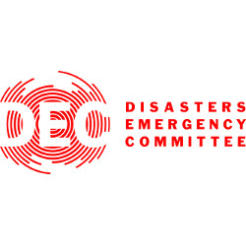The Disasters Emergency Committee’s income for the year ending March 2015 was down by £30m on the previous year, despite appeals for the Gaza crisis and the Ebola crisis launching throughout the year.
The umbrella body, which brings together 13 UK aid charities, had an income of £40m last year, according to its latest accounts which were filed with Companies House this week. This was down from £70m on the previous year.
In the last year, the DEC Gaza Crisis Appeal, which was launched in August 2014, raised £12.3m. The DEC Ebola Crisis Appeal, launched in October 2014, raised £23.7m.
The Syria Crisis Appeal, which had been launched in March 2013, remained open until October 2014, raising a further £1.7m this year. A further £3m was received by the DEC for other appeals launched in previous years, as donations from member agencies, and as general unrestricted income.
The charity’s total expenditure for the year amounted to £41.9m, including £37.3m of appeal funds “committed to member agencies for use towards relief programmes”, and £4m in costs of generating funds.
In a statement, the umbrella body’s chief executive Saleh Saeed said that natural disasters tend to raise more money than other types of emergency, which explains the drop in income. Last year saw £57m raised for the Philippines Typhoon Appeal.
Saeed said that the DEC’s annual income is “almost entirely dependent upon the British public’s very generous response to emergency appeals which have been launched that year”.
He said: “In 2014/2015 the DEC ran appeals for the Ebola crisis and for Gaza, both of which were very successful, and the Syria appeal remained open from the previous year. However in 2013/2014 the DEC launched the Philippines Typhoon which was one of our most successful appeals ever.
“Natural disasters always tend to raise more money than other types of emergency. In 2013/2014 the DEC also continued to receive funds from the Syria Crisis appeal, which was kept open for an unprecedented 19 months.”
The DEC’s Nepal Earthquake Appeal, which was launched following the earthquake that killed hundreds in April, raised £65m in less than a month. However, this appeal will be included in the DEC’s annual report for the year ending March 2016.
The charity’s accounts also reveal that its expenditure on charitable activities as a percentage of total resources spent by the DEC over the past five years averaged at 95 per cent.
It said that during this period the DEC distributed £253m of donated funds to its member agencies towards their response programmes in areas hit by disaster or emergency.
The average number of people employed by the charity went up from 12 to 15, with the highest earning employee being Saeed – whose salary went up by £3,000 to £90,460.









